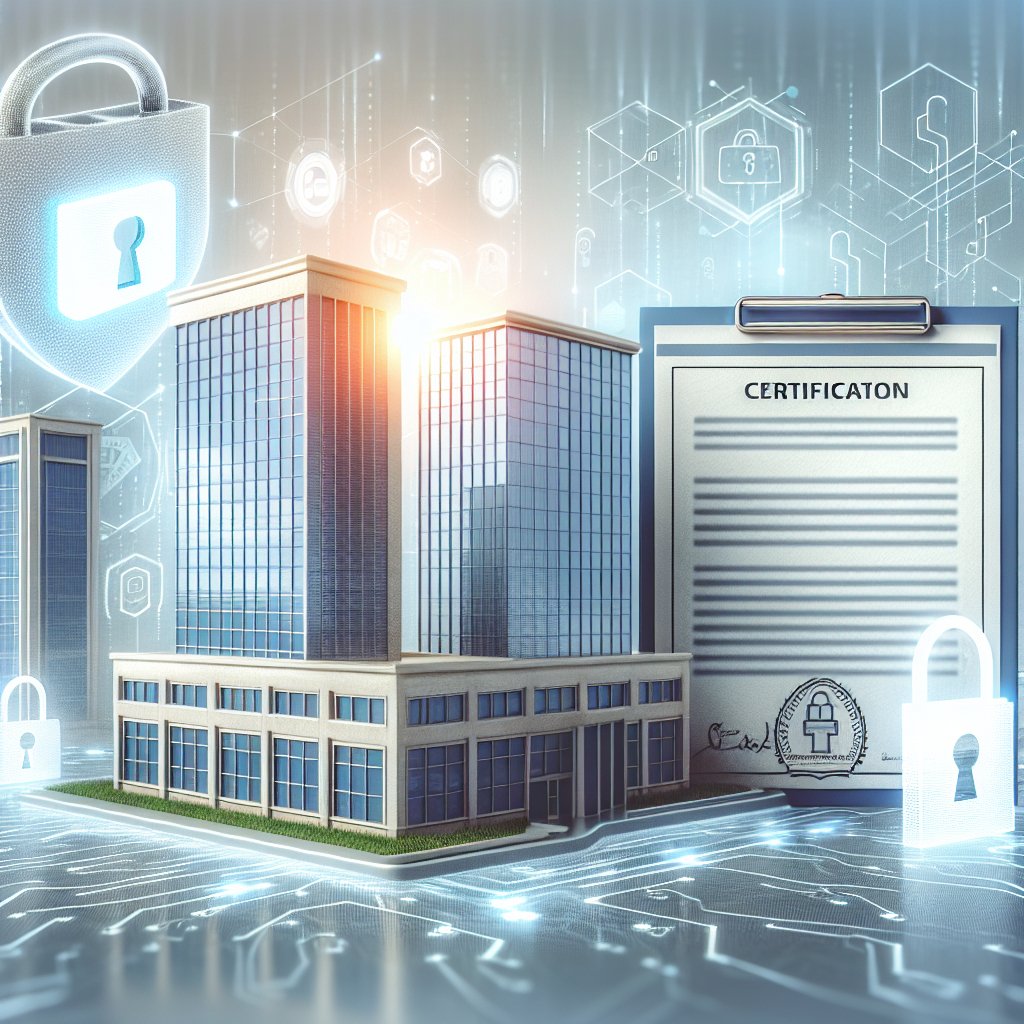The importance of cybersecurity certifications for businesses cannot be overstated in an era where digital threats are increasingly sophisticated and pervasive. As organizations continue to rely on technology for their operations, the need for robust cybersecurity measures has become paramount. Cybersecurity certifications serve as a benchmark for knowledge and skills in the field, ensuring that professionals are equipped to protect sensitive information and maintain the integrity of business operations. This article will explore the significance of cybersecurity certifications, the various types available, and how they contribute to a secure business environment.
Understanding Cybersecurity Certifications
Cybersecurity certifications are credentials awarded to individuals who demonstrate a certain level of expertise in the field of cybersecurity. These certifications are typically obtained through rigorous training programs and examinations that assess a candidate’s knowledge of security protocols, risk management, and incident response strategies. The growing demand for cybersecurity professionals has led to the emergence of numerous certification programs, each catering to different aspects of cybersecurity.
Types of Cybersecurity Certifications
There are several types of cybersecurity certifications available, each focusing on different areas of expertise. Some of the most recognized certifications include:
- Certified Information Systems Security Professional (CISSP): This certification is designed for experienced security practitioners, managers, and executives. It covers a broad range of topics, including security and risk management, asset security, and security architecture and engineering.
- Certified Ethical Hacker (CEH): This certification focuses on the skills needed to identify and address vulnerabilities in systems. It teaches professionals how to think like a hacker, enabling them to better defend against cyber threats.
- CompTIA Security+: Aimed at entry-level professionals, this certification covers foundational cybersecurity concepts, including network security, compliance, and operational security.
- Certified Information Security Manager (CISM): This certification is tailored for individuals who manage, design, and oversee an enterprise’s information security program. It emphasizes risk management and governance.
- Certified Information Systems Auditor (CISA): This certification is intended for professionals who audit, control, monitor, and assess an organization’s information technology and business systems.
Each of these certifications plays a crucial role in establishing a professional’s credibility and expertise in the cybersecurity domain. By obtaining these credentials, individuals not only enhance their career prospects but also contribute to the overall security posture of their organizations.
The Business Case for Cybersecurity Certifications
Investing in cybersecurity certifications for employees is not just a matter of compliance; it is a strategic business decision that can yield significant benefits. Organizations that prioritize cybersecurity training and certification can better protect their assets, maintain customer trust, and ensure regulatory compliance.
Enhancing Security Posture
One of the primary reasons businesses should invest in cybersecurity certifications is to enhance their overall security posture. Certified professionals are equipped with the latest knowledge and skills to identify vulnerabilities, implement security measures, and respond effectively to incidents. This proactive approach to cybersecurity can significantly reduce the risk of data breaches and cyberattacks.
Moreover, having certified personnel on staff can help organizations develop and maintain robust security policies and procedures. These professionals can conduct regular security assessments, ensuring that the organization remains compliant with industry standards and regulations.
Building Customer Trust
In today’s digital landscape, customers are increasingly concerned about the security of their personal information. Businesses that prioritize cybersecurity and employ certified professionals can build trust with their customers. By demonstrating a commitment to protecting sensitive data, organizations can differentiate themselves from competitors and foster customer loyalty.
Additionally, many industries have specific regulatory requirements regarding data protection. By employing certified professionals, businesses can ensure compliance with these regulations, further enhancing their reputation and trustworthiness in the eyes of customers and partners.
Cost-Effectiveness
While investing in cybersecurity certifications may seem like an additional expense, it can actually be a cost-effective strategy in the long run. The financial impact of a data breach can be devastating, with costs associated with remediation, legal fees, and reputational damage. By proactively training employees and ensuring they are certified, organizations can mitigate the risk of such incidents and potentially save significant amounts of money.
Furthermore, certified professionals are often more efficient in their roles, leading to increased productivity and reduced downtime in the event of a security incident. This efficiency can translate into cost savings for the organization, making the investment in certifications worthwhile.
Implementing a Cybersecurity Certification Program
To fully leverage the benefits of cybersecurity certifications, organizations should consider implementing a structured certification program. This program should align with the organization’s overall security strategy and business objectives.
Assessing Training Needs
The first step in implementing a certification program is to assess the training needs of the organization. This involves identifying the current skill levels of employees, understanding the specific cybersecurity challenges the organization faces, and determining which certifications would be most beneficial. Conducting a skills gap analysis can help organizations pinpoint areas where additional training is needed.
Choosing the Right Certifications
Once the training needs have been assessed, organizations should choose the appropriate certifications for their employees. This decision should be based on the organization’s industry, size, and specific security requirements. It is essential to select certifications that are recognized and respected within the industry to ensure that employees gain valuable skills and knowledge.
Providing Resources and Support
To facilitate the certification process, organizations should provide employees with the necessary resources and support. This may include access to training materials, online courses, and study groups. Additionally, organizations can consider offering financial assistance for certification exam fees, as this can encourage employees to pursue their certifications.
Monitoring Progress and Success
Finally, organizations should monitor the progress of their certification program and evaluate its success. This can be done by tracking the number of employees who obtain certifications, assessing improvements in security posture, and gathering feedback from employees about the training process. Regularly reviewing and updating the certification program will ensure that it remains relevant and effective in addressing the organization’s cybersecurity needs.
Conclusion
The importance of cybersecurity certifications for businesses is clear. As cyber threats continue to evolve, organizations must prioritize the training and certification of their employees to safeguard their assets and maintain customer trust. By investing in cybersecurity certifications, businesses can enhance their security posture, build customer loyalty, and ultimately save costs associated with data breaches. Implementing a structured certification program will not only empower employees but also contribute to a more secure and resilient organization in the face of ever-changing cyber threats.



